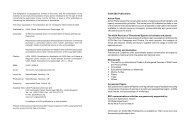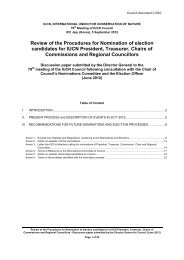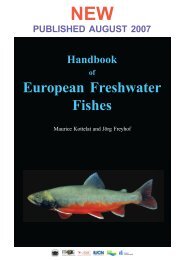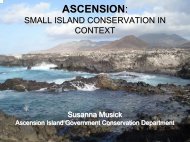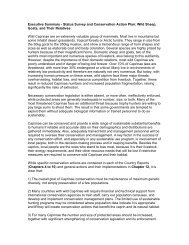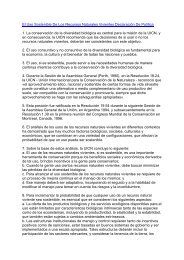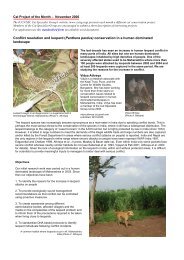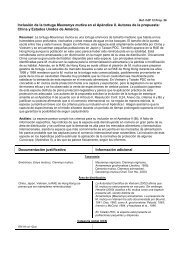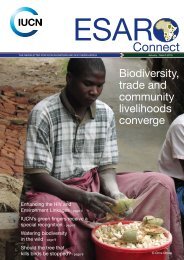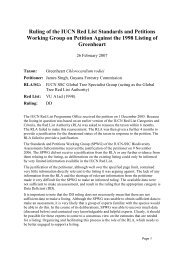Planning education to care for the earth - IUCN Knowledge Network
Planning education to care for the earth - IUCN Knowledge Network
Planning education to care for the earth - IUCN Knowledge Network
Create successful ePaper yourself
Turn your PDF publications into a flip-book with our unique Google optimized e-Paper software.
<strong>Planning</strong> <strong>education</strong> <strong>to</strong> <strong>care</strong> <strong>for</strong> <strong>the</strong> <strong>earth</strong>ConclusionThe conclusion can be drawn that a project <strong>to</strong> reduce human pressureson nature <strong>to</strong>uched on <strong>the</strong> subjects that interest families most: <strong>the</strong>irpurse, <strong>the</strong>ir convenience and <strong>the</strong>ir security. As <strong>for</strong> <strong>the</strong> craftsmen, <strong>the</strong>yprospered from <strong>the</strong> launching of a new product. In different ways, <strong>the</strong>populations of <strong>the</strong> Sahel are being asked <strong>to</strong> make enormous ef<strong>for</strong>ts in<strong>the</strong> fight against desertification. They have shown <strong>the</strong>mselves <strong>to</strong> besensitive <strong>to</strong> <strong>the</strong> slogans and <strong>the</strong>mes of official campaigns whe<strong>the</strong>r <strong>for</strong>re<strong>for</strong>estation, conservation of <strong>the</strong> natural environment, or <strong>the</strong>res<strong>to</strong>ration of lands.Innumerable one-off voluntary actions have been taken with <strong>the</strong>encouragement of local leaders or socio-political movements. Manythousands of hectares have been replanted annually by volunteers. Toask people <strong>to</strong> make lasting ef<strong>for</strong>ts - and only those will effectivelyprotect <strong>the</strong> environment - is, however, unrealistic unless <strong>the</strong>y can findmore or less immediate advantage in <strong>the</strong>ir action.The lower <strong>the</strong> standard of living, <strong>the</strong> more people are in a hurry <strong>to</strong>draw benefits. Two conditions are necessary <strong>to</strong> enlist <strong>the</strong>ir support:•a conservation programme must not be restrictive <strong>to</strong> <strong>the</strong> point oflimiting <strong>the</strong>ir chances of survival or of meeting <strong>the</strong>ir basic needs;•<strong>the</strong>y must feel <strong>the</strong> threat approaching and be aware that ultimately<strong>the</strong>y will bear <strong>the</strong> consequences of <strong>the</strong> degradation of resources.The problem is <strong>the</strong> same in all countries, rich and poor. No oneinvests in short- or long-term actions <strong>to</strong> preserve <strong>the</strong> environmentwithout <strong>the</strong> prospect of ensuring a sufficient revenue <strong>to</strong> cover vitalneeds. There are numerous cases where populations, in answeringpositively <strong>the</strong> call <strong>for</strong> protection of <strong>the</strong> environment, have unspokenthoughts. In <strong>the</strong> Sahel, this is <strong>the</strong> case with many water and landconservation projects where, in exchange <strong>for</strong> <strong>the</strong>ir participation,people seek property rights on <strong>the</strong> land <strong>the</strong>y have helped <strong>to</strong> develop.86



